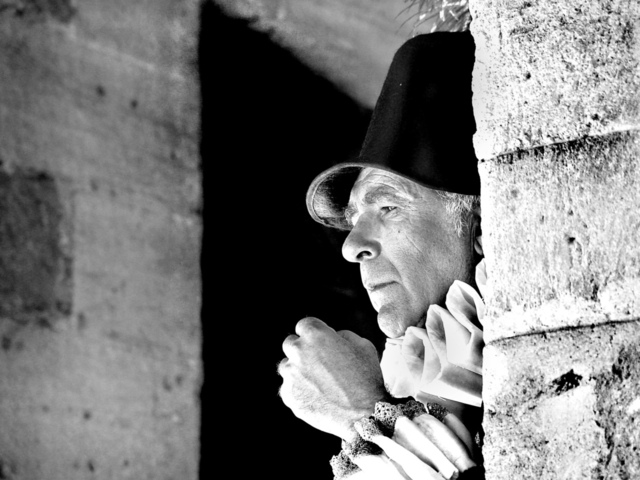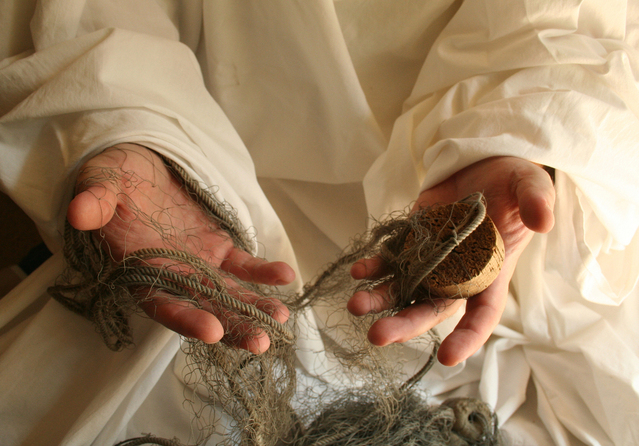Being Constantly Focused on Jesus and His Subtle Guidance

In our fast-paced world, staying focused on Jesus can be both challenging and crucial. Just as a skilled worker remains attentive to their supervisor’s every gesture, we as believers are called to keep our eyes fixed on Christ. This steadfast attention goes beyond mere obedience; it’s about developing a deep, natural understanding of His will. Imagine being so attuned to the Lord that you discern His guidance from the slightest spiritual “cue”. Yet, how often do we find ourselves distracted, missing the subtle ways He speaks to our hearts? In our eagerness to serve, we sometimes forget to listen. This constant, devoted state of being focused on Jesus isn’t just a lofty ideal—it’s essential to a fulfilling spiritual life.
Attentive Service in Fine Dining
When you dine out at a very fine restaurant, you will usually find that the person who waits on you to be extremely attentive to your dining needs. Drop a fork or knife, and your server will appear almost immediately, with a replacement in hand. When the level of the beverage in your glass begins to run low, your server is already present, refilling or exchanging it for another one that was previously filled, before even a word has been spoken.
It seems like the server’s eye is constantly on you.
Should a question or need arise on your part, a simple glance in the server’s direction will be all that is necessary to bring him or her to your assistance. It seems like the server’s eye is constantly on you. If you are a regular patron there, the wait-staff might even have become so knowledgeable and observant of you that your movements, your habits—your very body language—will attract their presence so that there is no need for an additional indication from you.

Anticipating Needs Beyond Restaurants
This is not limited to a restaurant only. In the home of someone of significant wealth or stature, there is usually a butler or trained employee who is so focused on the commands of the owner of the house that they are able to immediately and discreetly detect the signaling of their employer’s hand and its meaning.
Whatever the indicator used, the servant is always fixated on the employer, remaining ready to fulfill any upcoming request or need at once.
The signal might be as simple as a raised, bent index finger indicating that a particular dish is cold and needs to be replaced. Or the hand could be uplifted slightly to the left, signaling for a particular hat or coat. Whatever the indicator used, the servant is always fixated on the employer, remaining ready to fulfill any upcoming request or need at once.
The Biblical Parallel: Psalm 123
This is the concept the psalmist was referring to in Psalm 123: “Unto thee lift I up mine eyes, O thou that [lives] in the heavens. Behold, as the eyes of servants look unto the hand of their masters, and as the eyes of a maiden unto the hand of her mistress; so our eyes wait upon the Lord our God…” (Psalm 123:1,2). But for many, their eyes do not remain focused on Jesus, even though they genuinely have the desire to please Him.

The Danger of Distraction
They allow themselves to be distracted, looking at something or someone else when they should be attentive to His call, no matter how small. As a result, they miss the subtle cues and indicators that they should have noticed and responded to at once.
Peter’s Example: Walking on Water
When Peter, one of Jesus’ closest disciples, had his eyes focused on Jesus, he actually walked on the water one time to meet Him. “But when he saw the wind boisterous, he was afraid; and beginning to sink, he cried, saying, Lord, save me” (Matthew 14:30). He allowed himself to be distracted by the stormy wind and took his eyes off of the Master. He was doing fine before, but it was then that he began to sink.

The Consequences of Inattentiveness
In our relationship with Jesus, we need to be constantly looking to Him in order to reach the point that we know just what He wants us to do. We cannot allow ourselves not to be focused on Jesus and in turn, to become spiritually inattentive to His needs and desires. Just imagine how we would feel if we went into a posh restaurant and were ignored for a good portion of our visit. We sit and wait and wait for a server to take our order. Then several side dishes are delivered which are either incorrect or already cold.
A Relatable Analogy: Poor Restaurant Service
We raise our hand to signal the server, but only after a lot of vigorously waving do we finally catch the server’s attention. Our beverage glasses remain empty so long that all of the remaining ice has melted. We look forward to having dessert after the main meal, but the wait-staff is too busy or inattentive to even look our way. We very likely become angry and upset at this point, so we get up and leave the restaurant. After all of their initial efforts to please us and do what is right, the servers have allowed themselves to become distracted to the point that they have driven us away!
Yet, in all our efforts to please Him, we have failed to keep our eyes continually attentive to the movement of His hand. He has subtly spoken to our hearts, but in our zeal to do what we think is right, we have missed it.
Striving to Remain Focused on Jesus
But how often have we as believers in Christ done this to our Master? We go to church, we read the Bible, we pray to God. Yet, in all our efforts to please Him, we have failed to keep our eyes continually attentive to the movement of His hand and are no longer focused on Jesus. He has subtly spoken to our hearts, but in our zeal to do what we think is right, we have missed it. Instead of just trying to do what is right before God, why don’t we go beyond that point and strive to reach the place where “our eyes wait upon the Lord our God”?
Father, help us to be so close and established in our relationship with You and so focused on Jesus, your Son that we are able to know and discern the meaning of every movement and indication of Your hand. Amen.
[Additional image credits: Featured image (when applicable) by Miriam Alonso on Pexels; Opening image by Tamas King on Freeimages.com]




